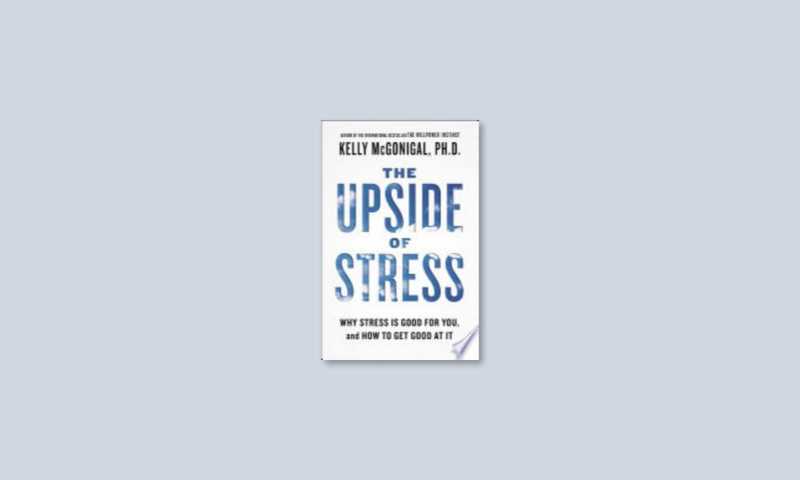
The Upside of Stress by Kelly McGonigal: Actionable Tips to Reduce Stress and Anxiety
In today's fast-paced world, stress has become an inevitable part of our lives. For many, it's a constant companion that seems to be lurking around every corner. But what if there was a way to not only manage stress but also turn it into a positive force in our lives? "The Upside of Stress" by psychologist Kelly McGonigal offers a fresh perspective on stress, suggesting that it can actually be beneficial to our well-being and success if we learn to embrace it. In this blog post, we will explore the key takeaways from the book and provide actionable tips to help you reduce stress and anxiety in your life.
Embracing Stress: The Upside of Stress
Kelly McGonigal's book is based on the premise that stress is not inherently bad. In fact, stress can have positive effects on our lives if we learn to view it as a helpful tool rather than a hindrance. The first step to adopting this mindset is to understand the different types of stress and how they impact us.
Types of Stress
- Positive stress (eustress): This type of stress is associated with feelings of excitement and motivation. It is often experienced when we are facing a challenge or pursuing a goal, and it can help us perform at our best.
- Tolerable stress: This is a temporary stressor that we can generally cope with, such as a job interview or a difficult conversation. While it may be uncomfortable, it is manageable and does not have long-term detrimental effects on our well-being.
- Toxic stress: This type of stress is chronic and overwhelming, and it can have negative consequences on our physical and mental health if not addressed.
Embracing Stress: A Shift in Mindset
One of the key takeaways from "The Upside of Stress" is the importance of shifting our mindset about stress. By changing how we perceive stress, we can actually alter our physiological response to it and tap into its potential benefits. Here are some actionable tips from the book to help you embrace stress:
Reframe stress as helpful: Recognize that stress can be a sign that you are engaged in something important or challenging. Instead of viewing it as a threat, see it as an opportunity for growth and learning.
Acknowledge your stress response: Instead of trying to suppress or ignore your stress, accept it and listen to what it's telling you. Your stress response is your body's way of preparing you to handle a challenge, and acknowledging it can help you harness its energy.
Focus on your values: When faced with stress, take a moment to reflect on your core values and how they relate to the situation at hand. This can help you find meaning and purpose in the stressor, making it more manageable and even motivating.
Cultivate a growth mindset: Embrace the idea that challenges and setbacks are opportunities for growth and learning. This mindset can help you approach stress with curiosity and resilience, rather than fear or avoidance.
Connect with others: Building a support network of friends, family, and colleagues can help you cope with stress more effectively. Sharing your experiences and offering support to others can create a sense of belonging and foster resilience in the face of stress.
Practice self-compassion: Treat yourself with kindness and understanding when you're experiencing stress. Recognize that it's a normal part of life, and give yourself permission to feel and learn from it.
Develop healthy coping strategies: Find ways to manage stress that align with your values and promote well-being. This might include exercise, meditation, or pursuing a hobby that brings you joy.
Reducing Stress and Anxiety: Practical Tips
In addition to embracing stress, "The Upside of Stress" also offers practical advice for reducing stress and anxiety in your life. Here are some actionable tips to consider:
Set boundaries: Learn to say no and prioritize your time and energy. Establishing healthy boundaries can help you avoid becoming overwhelmed by excessive demands on your time.
Practice mindfulness: Incorporate mindfulness techniques, such as meditation or deep breathing, into your daily routine. These practices can help you stay present and grounded, making it easier to cope with stress.
Get adequate sleep: Prioritize getting enough sleep each night, as sleep is essential for managing stress and maintaining overall well-being.
Engage in regular physical activity: Exercise has been shown to reduce stress and improve mental health. Find an activity you enjoy and aim to incorporate it into your routine.
Eat a balanced diet: A healthy diet can have a positive impact on your mood and stress levels. Focus on consuming a variety of nutrient-dense foods, including fruits, vegetables, whole grains, lean protein, and healthy fats.
Stay connected: Maintain social connections and engage in activities that foster a sense of community and belonging.
Seek professional help: If stress or anxiety is interfering with your daily life, consider seeking the help of a mental health professional.
Conclusion
"The Upside of Stress" challenges our conventional wisdom about stress and provides a refreshing perspective on how we can harness its potential for growth and resilience. By embracing stress and adopting healthy coping strategies, we can not only reduce anxiety but also transform stress into a powerful force for personal growth and well-being.